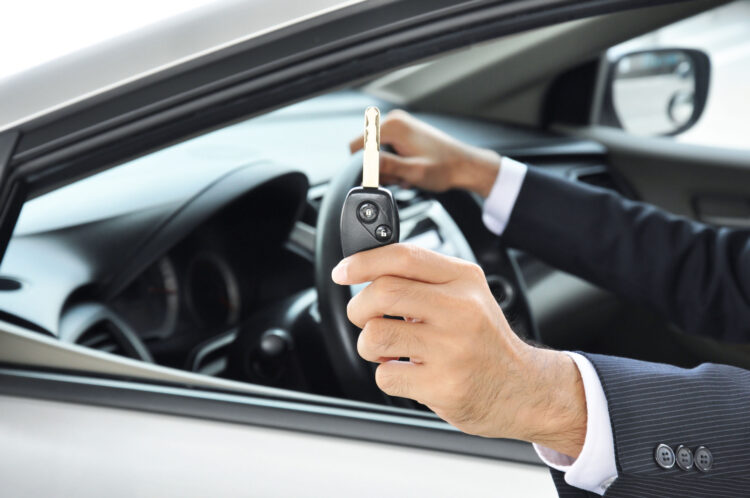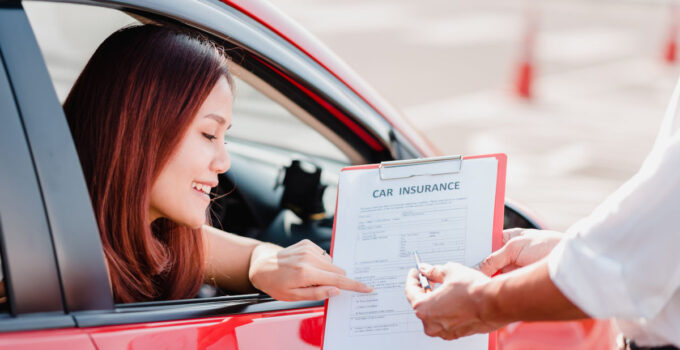Rental car insurance is a policy that comes from a credit card, personal insurance policy, or the car rental company. This type of insurance is put in place to protect drivers when they are operating a rental car. Depending on the type of coverage, rental car insurance can cover vehicle damage, injuries that were caused by the driver, injuries sustained by the driver, loss of items that were in the vehicle, or theft of the vehicle.
There are several instances where it’s logical to purchase rental car insurance, such as if you’re traveling in another country or renting the car long-term. Depending on how you’re paying for your rental and your personal insurance policy, you may not need to purchase an additional rental car insurance policy.
Here are a few ways to determine if you need rental car insurance.
Page Contents
1. Important Things to Know About Rental Car Insurance

Source: wildcardbrewingco.com
According to Carinsurent.com, the most popular forms of rental car insurance are liability, personal accident, personal effects, and collision damage waiver.
The average cost of rental car insurance is $61 a day, but this price depends on where you rent the car and how much coverage you need. In most cases, your credit card benefits, insurance for your personal vehicle, or your health insurance can give you adequate coverage when you rent a vehicle.
You can also purchase rental car insurance alternatives like non-owner car insurance, travel insurance, or temporary car insurance. When you’re selecting a policy, consider the potential cost of damage to the rental car and how much coverage you currently have.
2. Do You Really Need Rental Car Insurance?
If you have insurance on your personal car and you secure a rental car with your credit card, you usually don’t need to purchase additional insurance if you’re renting your vehicle in Canada or the U.S. If you are securing a rental car for business, additional insurance may not be necessary in this case, either.
Most of the time, the insurance policy you have on your personal vehicle will cover you when you’re driving a rental car. If you pay for the rental with a credit card, you’ll usually receive some form of collision insurance. You are usually covered by your company’s insurance policy if you’re renting a car for business. Be sure to contact your employer to see exactly what coverage is provided before your business trip.
However, for incidents that affect no other drivers than yourself and the damage was done to the car (even if it was not your fault like a flat tire), if you don’t buy rental car insurance through the car rental agency, you may need to shell out the money to do the repairs.
That is why, it is critical to know what your card and personal car insurance cover. If you feel like the coverage is not enough for your current situation (a business trip or a vacation in the middle of nowhere), supplement the existing car insurance with what the rental agency has to offer.
If you don’t know what your personal auto insurance covers, give the insurance company a call and make the necessary adjustments. You don’t want to rely solely on your personal insurance in the wake of a damaging crash as it might severely impact your premium. Usually, personal auto insurance with comprehensive coverage and a liability policy is all you need for your peace of mind when hitting the road.
Also, bear in mind that if your credit card insurance is set as secondary, it means that you’ will have to first exhaust your personal auto insurance before tapping the credit card car insurance. What is more, not all credit card insurance policies are created equal. Some may cover car repairs and medical bills spurred by your actions on other people, other policies may cover only the repairs.
In the latter situation, you might need to buy personal liability insurance too. Also, if the personal liability offered by credit card insurance does not seem enough, you can supplement it through the rental agency usually up to $1 million. Make sure you read the fine print before hitting the road in a rental car.
3. You May Already Have Rental Car Insurance

Source: carswalk.com
As mentioned, if you already have health insurance or an insurance policy for your personal car, you may not need rental car insurance. However, you can purchase the additional coverage for peace of mind before getting on the road.
Keep in mind that if you use your personal auto insurance for your rental vehicle, you won’t receive additional coverage. You’ll have the same benefits as you would if you were driving your car. Remember that if you have comprehension and collision coverage, you will have a pay a deductible, whether you’re in a rental vehicle or your automobile.
4. Health Insurance
Don’t forget that you can use your personal health insurance as coverage for your rental car. Most health care policies will cover any medical assistance you need if you’re traveling in the U.S. and some policies allow you to receive care in other countries as well. If you need the assistance of the paramedics or have to go to the emergency room after an accident, you are responsible for copays and deductibles connected to your insurance.
5. Seek Legal Advice

Source: pinterest.com
If you get into a fender bender or serious accident while you’re driving a rental car, you may need a lawyer to determine liability for damages in a rental car accident. The attorney will look at all the details of the accident to determine if you are liable, partially liable, or have the right to pursue compensation from the other driver.
It is important to have some type of insurance in place to reduce the expenses associated with a car accident, especially if you are in a rental car. You can click this link to learn more about what happens if you get in a car accident in a rental car and what the next steps may be.





